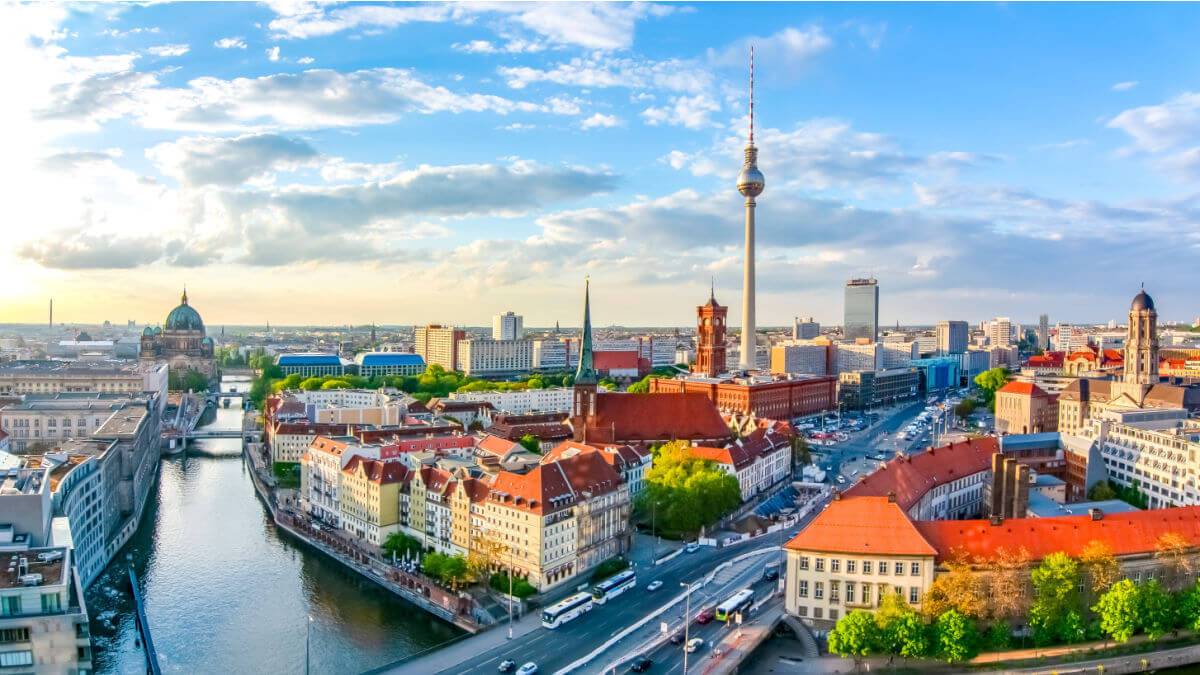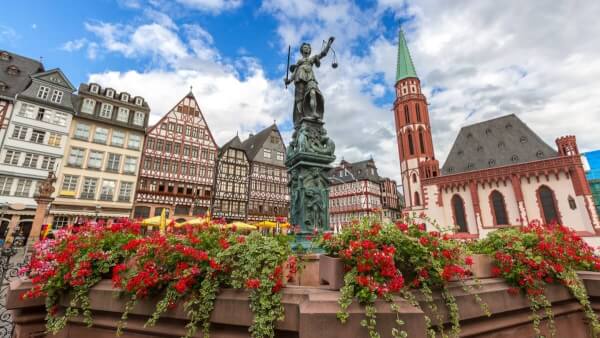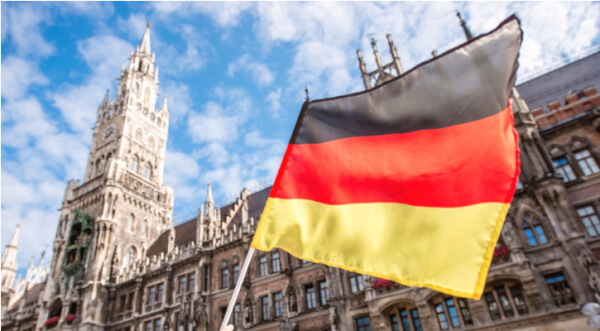How to transfer UK pension to Germany
Read our helpful guide on how to transfer a UK pension to Germany, including the steps, fees and taxes involved.

Thinking of moving to Germany from the UK? Moving overseas is a big step, whether you are doing so for a particular job or to embrace the freedom of a digital nomad.
Before you go anywhere, you’ll need to ensure you have all the paperwork you need to legally move. This includes a visa.
Whilst your visa ensures you can stay for more than 90 days, you’ll usually need a residence permit to stay for an indefinite length of time as a foreign national.¹
This guide will cover everything you need to know about the D visa, the long-stay German Visa which acts as the residence permit in Germany.
We’ll look at how to apply, the eligibility requirements and how much it costs to apply.
Plus, we’ll touch on some tips and tricks on how to easily manage your money between your current and new homes with a financial services provider Wise. Open a Wise account online and you can send money between countries for low fees and mid-market exchange rates.
Learn more about the Wise account
Please see the Terms of Use for your region or visit Wise fees & pricing for the most up-to-date information on pricing and fees.
The German immigration system has a wide range of residence permits and visas. There are different ones for types of professionals and particular contexts.
The Aufenthaltsdokument-GB (Residence Document) is the main type of residency documentation for UK workers living in Germany prior to 2021. It’s also for new applicants for a visa permit to remain in Germany.
Unlike many other countries, UK residents do not need to apply for residence documentation before they travel to Germany. For 90 days they are covered under rules similar to the EU Schengen agreement.²
Under German Immigration Law, there are two official types of residence documents. These are:
Alongside these two, there is also a limited residence permit for jobseekers. This lasts for six months or until the person in question finds a job and applies for a standard residence permit.
The requirements for each residence permit vary by type. For the jobseekers’ residence permit, you need:³
The standard residence permit with the right to work (as opposed to the right to reside for education, humanitarian/political or family reasons) has similar requirements:⁵
For freelancers, entrepreneurs and the self-employed, the requirements are slightly different:⁶
Finally, for a settlement permit, which provides the permanent right for a foreign national to live and work in Germany, they require:⁷
There is a clear progression path when it comes to residence permits in Germany, from initial jobseekers’ documents through to permanent settlement.
For many people going through the German residency process, the D visa and the residence permit are two stages in largely the same process. However, they are not the same.
The D-visa is a visa that allows citizens of countries outside of the EU (as well as Norway, Iceland, Liechtenstein and Switzerland) to work for the lifespan of the visa. This depends on the purpose of entry.
For British citizens and citizens with UK residency documents, you do not necessarily need a D visa to get a residency permit.
However, you cannot work in Germany until you do. You will also have to organise long-term residency documents within 90 days of arrival and register at your local registration office within 14 days of arriving.⁸
Yes you can, as long as your UK residence permit is valid for at least a month beyond the date you plan to leave the Schengen area or Germany itself.
The rules are the same as for a UK citizen, so you need to apply for a D visa if you plan to work in Germany during that time. You’ll be allowed to stay for up to 90 days in any 180-day period.
The costs of a residence permit in Germany can vary depending on the local area the permit is applied within. Another factor is the nature of the permit itself (education, self-employed, work etc.).
Typically, it costs up to €110 for the first application, with extensions costing up to €100. This will again depend on the nature of the permit and how long it is set to last for.⁹
Bear in mind as well that this fee is not a deposit. If your application fails for whatever reason, you will not get that money back.
The German government recommends that you should open a bank account in the country as soon as you can. You could go with the large, high street banks in Germany, but, a much easier and more affordable way to send money across to cover those initial costs could be with a Wise account.
With no hidden costs and low, transparent fees, Wise is an ideal way to manage your money as you navigate the residency system and take care of your finances across international waters.
Please see the Terms of Use for your region or visit Wise fees & pricing for the most up-to-date information on pricing and fees.
Applying for a German residence permit has changed for UK citizens since 2021 as the EU withdrawal agreement has taken effect.
The UK is now considered a third-party country. However, you can apply for residence permits in Germany itself without securing a visa beforehand.
If you are going to do this, make sure to get in touch with the local immigration office as soon as possible when you arrive in Germany. This is because you need to register your new residence within 14 days, and have a residency permit within 90 days.
Here is the step-by-step guide to applying:
It typically takes between two weeks and several months from paying the fee to receiving a decision and being able to pick it up.¹¹
It can take much longer than this if the office is dealing with a lot of other applications. But you will be covered by a certificate that says you are applying for a permit.
The length of a permit depends on the reason it was applied for. However, the typical length is a year, with room to be extended.
The German immigration system is complex. But it does have some provisions for allowing family members of someone residing in Germany to join them, although the rules vary depending on the circumstances of the person currently in Germany.¹²
Children under the age of 16 can come to Germany as a matter of principle. Over 16s are also permitted if they come within three months or can speak German to a reasonable level.
Spouses can join you in Germany as long as there is enough room for them, they can or are willing to learn German and the person living in Germany already can support them.
Germany is a wonderful country to move to, whether for work, business or personal reasons. And the process for moving to Germany is not as complex nor as daunting as it can often appear.
Hopefully after reading this guide, you’ll have a better idea of what’s involved and be able to get started.
Sources used:
Sources last checked on date: 13-May-2023
*Please see terms of use and product availability for your region or visit Wise fees and pricing for the most up to date pricing and fee information.
This publication is provided for general information purposes and does not constitute legal, tax or other professional advice from Wise Payments Limited or its subsidiaries and its affiliates, and it is not intended as a substitute for obtaining advice from a financial advisor or any other professional.
We make no representations, warranties or guarantees, whether expressed or implied, that the content in the publication is accurate, complete or up to date.

Read our helpful guide on how to transfer a UK pension to Germany, including the steps, fees and taxes involved.

Everything you need to know about moving to Germany from the UK. Read about visas, buying property, renting, healthcare and more.

Are you or your partner expecting? While this is meant to be a very exciting time in your life, sometimes medical expenses and navigating public or private...

Holidays in Germany are celebrated differently than in many parts of the world. Germans take their holidays very seriously, with celebrations that are steeped...

Germany is so much more than sausages and beer. The country boasts incredibly low unemployment, a high quality of life, and a wonderful mix of history,...

Germany is already home to a healthy expat community and a thrivng tourism industry. From the parties and rich culture of Berlin, to the rich food and medival...